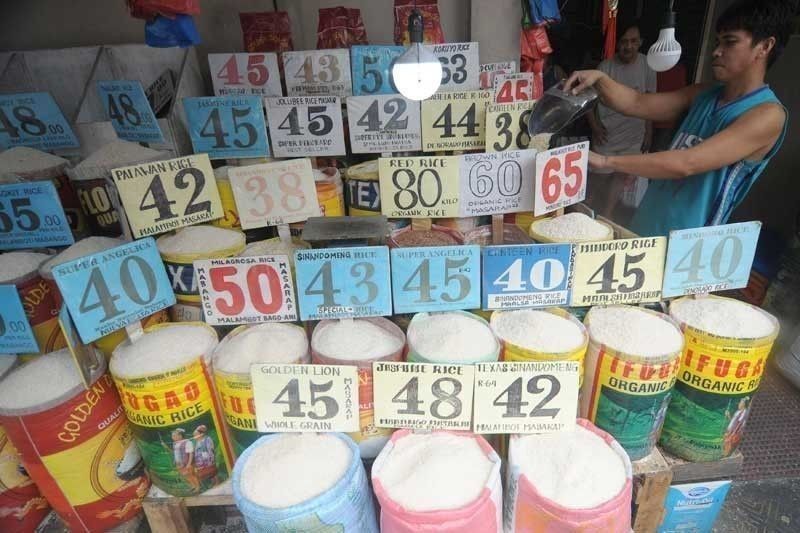Duterte’s order to limit rice importation during harvest season won’t help farmers, group says

MANILA, Philippines — President Rodrigo Duterte’s order to limit the importation of rice during the harvest season will do more harm than good, a group said Tuesday.
Duterte has assured farmers that the importation of rice during harvest season would be “limited” and that his administration would buy their produce even at a loss to the government.
Duterte said he has ordered the Agriculture department to come up with projections to determine how much rice would be imported.
In a statement, Action for Economic Reforms said Duterte’s directive would erode the gains from the Rice Tariffication Law and would not stabilize rice prices.
“History has shown that it is the manipulation of import controls that has created volatile and high prices for the overwhelming majority of Filipinos,” AER said.
“Farmers will enjoy higher prices in the short-term, but this will aggravate their long-standing problem of inefficiency and low productivity,” it added.
In February last year, Duterte signed the law that lifted the more than two-decade-old cap on rice imports in a bid to bring down the local prices of the staple grain.
Under the law, individuals and businesses can import additional volumes of the crop from Southeast Asian countries like Thailand and Vietnam but will have to pay tariffs.
Some groups said the influx of cheap rice from abroad has been hurting Filipino farmers.
Government data shows prices of palay plunged 24.49% in the third quarter of 2019, as farmers were forced to sell their produce to traders at lower prices amid the presence of imported rice in the market.
To manage the law’s impact on local farmers, the government said it would provide unconditional cash grants of P5,000 to P600,000 for rice farmers affected by lower farmgate prices.
The Department of Finance said the state collected P12.3 billion as of end-December 2019 from rice tariffs.
“If we wish to really help our farmers, the intervention should be creating the conditions for our farmers to increase their productivity, to make them competitive, which in turn will increase their incomes,” AER said.
“To rely on import control will not solve the problem of weak productivity,” it added.
“The import surge that we witnessed last year was part of a process of seeking a new normal. Now we see the imports stabilizing. Importers and buyers and consumers have now adjusted to a new equilibrium.”
- Latest
- Trending






























